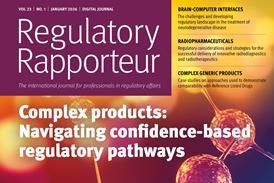The changing face of oncology development – is cancer still ‘different’? A US perspective

Oncology development has traditionally been thought of as ‘different’; that the rules that applied to other therapy areas were not necessarily applicable to the development of treatments for cancer patients, who until relatively recently, had exceedingly limited treatment options. Dose finding was based on the paradigm adopted for cytotoxics and was focused on identifying the maximum tolerated dose, and initial accelerated or conditional approvals were sought based on a small number of patients and surrogate endpoints often in single arm trials. However, cancer mortality rates dropped by 33% between 1991 and 2020 driven by earlier detection, reductions in smoking rates and the availability of novel therapies (American Cancer Society, 2023).
How to read this journal article
Thank you for visiting Regulatory Rapporteur. Journal articles are restricted to TOPRA members and registered users.
If you are a TOPRA member, or have already registered for limited free access, log in now (Option 1 below).
Not yet a member? You can either join TOPRA (Option 2 below) or register to view limited content for free (Option 3 below).




















